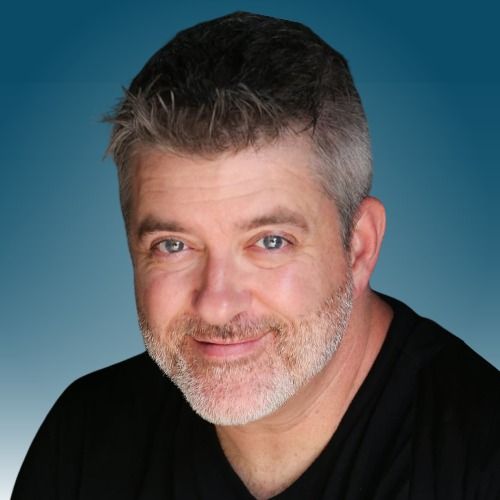Episode 67
The Forge: Behind the Scenes with Stephen Kendrick
Episode 67 - The Forge: Behind the Scenes with Stephen Kendrick
In part two of our interview with Stephen Kendrick on the Faith and Family Filmmakers podcast, Jaclyn talks with Stephen about his upcoming film 'The Forge,' set to release on August 23, 2024. Stephen shares insights on the inspiration behind the story, the collaborative process with his brother Alex, and how their church-integrated filmmaking approach shaped the project. He discusses the challenges faced during production, such as changing locations and dealing with unpredictable weather, and emphasizes the importance of having contingency plans. He also highlights the support from local churches and the community, which played a crucial role in their filmmaking journey. The conversation concludes with Stephen reflecting on the lessons learned over the years and the value of continuous learning and teaching within the filmmaking community. The Highlights:
- Inspiration Behind 'The Forge'
- Combining Universes: War Room and The Forge
- Filming in Albany, Georgia
- Overcoming Production Challenges
- Lessons Learned from Filmmaking
- Balancing Budgets and Bigger Productions
- Community and Church Involvement
Bio:
After serving in church ministry for 20 years, Stephen Kendrick now writes, speaks, and produces Christian films with his brothers Alex and Shannon. Stephen produced and co-wrote the movies THE FORGE, WAR ROOM, OVERCOMER, COURAGEOUS, FIREPROOF, and FACING THE GIANTS. In 2021, SHOW ME THE FATHER released; it was their first feature-length documentary, for which he served as an executive producer and writer. Their newest film, THE FORGE, is scheduled for a theatrical release by Sony Pictures on August 23, 2024. Along with his brother Alex, Stephen co-wrote the New York Times bestselling books The Love Dare, The Resolution for Men, and The Battle Plan for Prayer. He has been interviewed on “Fox & Friends,” CNN, and ABC World News Tonight. He serves on the boards of the Fatherhood CoMission and the Christian Worldview Film Festival. Stephen and his wife, Jill, live in Albany, Ga. with their six children and are active members at Sherwood Church.
The Kendrick Brothers on Facebook: https://www.facebook.com/search/top?q=the%20kendrick%20brothers
The Kendrick Brothers on Instagram: https://www.instagram.com/thekendrickbrothers/
The Forge on Instagram: https://www.instagram.com/forgemovie/
Content Christian media Conference Discount Code: 50FAFF
Jaclyn's Book, In the Beginning, Middle, and End https://www.amazon.com/dp/B0D9R7XS9V
The Faith & Family Filmmakers podcast helps filmmakers who share a Christian worldview stay in touch, informed, and inspired. Releasing new episodes every week, we interview experts from varying fields of filmmaking; from screenwriters, actors, directors, and producers, to film scorers, talent agents, and distributors.
It is produced and hosted by Geoffrey Whitt and Jaclyn Whitt , and is brought to you by the Faith & Family Filmmakers Association
Support Faith & Family Filmmakers Our mission is to help filmmakers who share a Christian Worldview stay in touch, informed, and inspired. If you would like to assist with the costs of producing this podcast, you can help by leaving a tip.
Enter the Faith & Family Screenwriting Awards festival
Faith and Family Screenwriting Academy: https://www.faffassociation.com/
Script Notes and Coaching: https://www.faffassociation.com/script-services
Copyright 2024 Ivan Ann Productions
Transcript
Welcome to the members only portion of the Faith and Family Filmmakers Podcast.
Speaker:My name is Jacqueline and I've got Stephen Kendrick with me today.
Speaker:I want to actually hear about The Forge.
Speaker:You mentioned it briefly in the first interview, and mentioned it's coming out in August.
Speaker:But I actually got to see it at CWVFF, and I really enjoyed it.
Speaker:And I would love to know, where did the inspiration for the story come from?
Speaker:With almost all of our movies, it has begun with my brother, Alex, praying for months for God to give him scene ideas between the two of us, he's wired like a director, he's the storyteller, and I'm wired like a producer.
:And I co write with him, but the majority of the writing, just about every film we've done, has been Alex.
:and so when we get together, we start laughing and writing a lot of humor.
:When we're alone, we go You know, in, in our own directions, but if you listen to us speak, Alex speaks like Jesus telling a parable, he's going to do an emotional prodigal son story or something, and he'll be briefed to the point, he'll communicate a story.
:I'm more sermon on the mount guy where I'm just going to be a rapid fire machine gun, one thick nugget after another, teaching biblical principles and those kinds of things and saying, But when you get us together, Alex will usually start talking about scene ideas, and I will start talking about biblical principles that we can embed into the storyline.
:The Forge, Alex had this whole idea, and he's had it for years, of this mentorship group of the older men discipling the younger men.
:And in his mind, he kept viewing it as an older black man discipling a young guy who was 18, 19, 20.
:Who grew up without a dad.
:We have worked like our church is very integrated.
:We loved making War Room and learning more and just fellowshipping with black believers and hearing about their passion for the Lord and what God was doing in their lives and then the things that they're going through and we saw on War Room.
:There's so much humor and passion that like a Miss Clara character, white 50 year old dude like me is not going to be able to bring.
:Alex was crafting out a few key scenes as to what he wanted to happen.
:And it hit me, I, I actually pulled out War Room and sat down and watched it with my family, and it's been years, I mean we shot that movie in 2014, it came out in 2015, and when you're releasing a movie you see it a ton of times, you get tired of it, You love watching audiences respond to it, but you've seen it so many times.
:So when you're done and the home video comes out or whatever, you're ready to move on to something else.
Speaker:Yeah.
Speaker:Yeah.
Speaker:You've been there, done that.
:That's right.
:But I pulled out War Room and watched it with fresh eyes.
:It had been many years with family and I had forgotten what's going to happen next in a lot of the scenes.
:And I was like, this is a great movie.
:I really am enjoying watching it.
:But it hit me that Priscilla's character Elizabeth in War Room, she keeps talking to her sister multiple times in the movie.
:And about Darren, her husband, and the problems that were there.
:And we already knew that with The Forge, that Priscilla was gonna be playing someone.
:The older mom and that she was gonna have a son.
:And so I went back to Alex and I said, What if we combined these universes and we took your storyline and we laid Warren, and we pulled some of the same characters?
:And we made, we allowed Miss Clara, which is one of the most beloved characters in any of our films, to also be in The Forge.
:And we make this the same universe.
:And because I'm Alex's younger brother, it's the lifted eyebrow.
:Yeah, I don't know.
:And then he walked away, you know, then he was like, well, it might could work, later on, I hear him talking to somebody else and he's like, all right, let me tell you what we're going to do.
:We're going to combine.
:All of a sudden it's his idea and he's running with it.
:yeah, and he wasn't claiming credit for it, but it was just funny to me.
:He's okay, yeah, this is going to work.
:And the more we got into it, we called Priscilla Shire, and she's . like, I'm gonna get to play two people, and then it got fun for us.
:Because we're like, alright, we're gonna have to go back and do the whole parent trap thing where you got Hayley Mills playing two roles.
:You know, so we started pulling up some of the technology because there's multiple movies that have been coming out where you've got one person playing two roles or the whole history of film.
:It's actually goes back to the black and white film days where people were creatively figuring out how to make one person play two roles and interact with themselves on the film.
:. And so that wasn't going to be a major part of the storyline, but we wanted to incorporate that
:The second big thing was, we were praying about where to shoot this movie, and it was like God said, Albany, Georgia, which is where we live, and we were thinking, we shot the first four films in Albany, and do we really want to come back, haven't we exhausted our city
:A warehouse opened up in town that was perfect for us to operate out of.
:Build our sets out of, it was all these things fell into place right in front of us.
:And then we found out that because of COVID a lot of gear was available at a cheaper rate.
:So we shot on the Alexa 35 camera, which is better than some of the Avengers movies It's just the cameras we used for the Forge are fantastic.
:And so Sony jumped on board.
:They got excited about the project.
:There was a piece about it.
:So we moved forward with writing the script, hiring crew, reserving people, and started building sets in Albany, Georgia by faith.
:And we shot the movie in the summer of 2023 with an amazing crew.
:A lot of crew members ended up going to our church on weekends, which they loved.
:And it was a blessing to our community.
:We've got hotels and we've got some new restaurants now in Albany.
:So there's just, we're a small town.
:But we do have an airport, and the Lord just drop all these things into place and that's how we really launched the journey
:on them.
Speaker:nice.
Speaker:Nice.
Speaker:Congratulations.
Speaker:And can you tell me, was there at any point where you had an obstacle that you were thinking like, okay, God's going to have to help us figure this one out?
:Absolutely.
:I would say filmmaking is going to war and you know that there's going to be a spiritual enemy.
:There's going to be.
:Physical problems and obstacles.
:You've got the whole human element of dealing with people because we have a hundred people on set every day and they've got marriages and family and health issues and life and filmmaking because you can't control the weather.
:We had a hail storm in Albany, Georgia, middle of the summer of 2023, which was crazy.
:We had issues with of course, locations always trying to find locations.
:So we had locations opening and closing where we had to quickly pivot and shift actors suddenly become unavailable, there were lots of things we're dealing with on every movie.
:So I tell people always plan a plan B and a plan C contingency for all of your major positions all of your.
:If you can, for your locations, always have a backup plan.
:And then in your shooting schedule, if it rains and you're shooting outdoors, which I would, we try to plan a lot of our outdoor stuff early on so we can knock it out.
:We don't, you don't want the last days of shooting to have no backup plan.
:I had people on the crew that like, if our DP Bob Scott got sick or something happened where he couldn't show up, I had Dave Spencer ready to slide right into that place.
:We had.
:Very competent people on our crew that could be ready in the shadows, which is exactly what football teams do.
:They got somebody in the bench ready.
:It's what, Broadway shows do.
:They've always got the the backup singers and the backup leads in place and the understudies ready to go.
:So I highly recommend with as much money as you might be spending and as many people.
:Is, would be helping you with the production.
:You always need to have a contingency plan.
:Because one person can shut down your entire production.
Speaker:Yeah I'm sure that since Flywheel, you have learned a lot about being organized and, coming up with these plans so that you can get the most of your time spent and, just really be good stewards with your resources.
Speaker:But was it something that you learned along the way, like the hard way or was that something where you were able to like somebody gave you the advice and you were able to just take it to heart it sounds like you have a very well oiled machine happening.
:And it's by trial by fire, what I would say is the brilliancy of the Lord.
:God is the master of all things, and he created the universe, wired our brains and our bodies to be able to function.
:He knows efficiency, he knows relationship, he understands money and time, infinitely better than we do.
:one of the benefits I would say that Alex and I have in the filmmaking is that we spent 20 years in church ministry studying scripture, learning biblical principles, working with people, working with volunteers that are not being paid, having to organize and manage people that are busy already, and they have marriages and families.
:And we care about their marriages and their families . So when we step into the filmmaking space, we're not just budgeting, with what we can get away with.
:We want people to be able to feed their families.
:And we're not just planning schedules to milk a worker, dry.
:We want to give them Saturdays and Sundays off to rest and spend time with their wives and kids.
:And then we will take biblical principles that we learned from teaching scripture and apply them to film.
:So God's word is relevant all day, every day.
:So us being able to pull scripture into those situations has been super helpful.
:But at the same time, God has sent professionals who've been working in the industry to come alongside us.
:And it's been beautiful because they're teaching us about film and things that happen in the regular Hollywood world.
:And then we're teaching them things we learned from the volunteer ministry world.
:And so if you hang out with us on our sets, it'll be out of the box because sometimes you'll feel like you're at a Christian summer camp where you're just hanging out with people, we're praying together and encouraging each other, and then other times you'll be like, man, the Kendrick brothers don't even know what that film term means.
:It's like we surrounded ourselves With, people that I would say we try to pull the best , but we also have no problem throwing out patterns and systems that Hollywood uses and replacing them with something that we feel like is more biblical.
:And it freaks people out early on if they're, if they have a lot of film experience.
:But then consistently, they're like, man, this is way better, this is less stressful, this is more fun and we're able to get more done, with less work by following these principles rather than just copying what Hollywood does.
Speaker:Okay, I have a question about getting into production.
Speaker:From what I understand, Flywheel was made on basically a shoestring.
Speaker:But your current or your more recent films have been made on a much larger budget.
Speaker:And for our listeners who are, let's say they're breaking into the industry, they've already made their shoestring films or, short films and they're wanting to get into those larger budgets.
Speaker:Does it get easier for you, having made these films, to get those larger budgets, or are you still, each time that you have a film that you want to produce, do you have to go out there and convince somebody to agree with you that it should get made and then give you the money?
Speaker:is that part of it still as hard as it was at the beginning or is it changing as you're going?
:I would say we're always swapping one problem for another.
:And we are with every film learning, and if we're learning and growing, then hopefully we're not repeating a lot of the same mistakes, but when the budgets get bigger and more people are involved, more is at stake in a sense, the pressure goes up on the front end, while we're solving problems on the back end with every film, and With every movie, we try to debrief with our department heads and our crew and we say what worked, what didn't work, who did you enjoy working with, who should we rehire, who should we not hire back is there, what should we do differently?
:And so I've got sometimes brutal autopsies.
:At the end of our productions of people being honest, telling me, y'all didn't do this well and or the crew felt devalued when you did this one thing.
:And I want to know those things.
:And we will try to take notes and improve, but I would say the challenges with every film have been unique to the film.
:And so every movie has been different.
:It's like a different kid and a different season.
:And but I would say they've gotten less stressful because the, we try to deal with the most stressful things at the end of every movie, as we're stepping into the future and not repeat those same mistakes, but there is a sense though.
:We're still, even though our budgets have gone from, Facing the Giants was a hundred thousand dollars to now we're doing five to 7 million movies.
:It's that's still tiny compared to Hollywood.
:our crew still feels like family.
:I've heard that if there's something about the number one 20, that when you get beyond one 20 people trying to manage them, you have to shift gears with other shepherds and multiple teams at different levels and things like people, if a pastor is pastoring a church of under 120 people.
:He can better manage and love on and go to the hospital and take care of those people in those families when it gets beyond 120.
:If he doesn't build and delegate, it's too many people our crews are usually 85 to a hundred people.
:but when you get into these giant movies, that have hundreds and hundreds of people all at once.
:If you're not breaking up into massive departments with shepherds over each of those departments and operating at another level, then you're going to implode under the pressure of it.
:In our situation, we've been blessed to be able to make the movies that we wanted to make.
:We haven't tried to do giant war movies and we haven't done anything, with special effects or anything like that.
:And so we want to make movies that People can relate to you and they can say, Hey, this could happen in my life or my family.
:So if I made a Star Wars, a Christian Star Wars movie, it's going to be a lot bigger budgets and,
:challenges.
:And, And, we have intentionally chosen stories and written stories.
:That are within reach in a sense with a lot of prayer and leaning on the body of Christ And we also lean on churches to help us when they find out what the movies are about Usually they get excited and we had 80 something churches that helped us with war room We had a similar amount help us with overcomer We had dozens of churches that just helped us on the forge and they get excited and show up and we'll provide extras in the background and free meals for the crew.
:And yes, you can park in our parking lot and use our buses.
:And it's fun.
:It's a lot of fun.
:They enjoy being a part of the journey of filmmaking, and they get to celebrate the fruit.
:Of the movies when they come out
Speaker:fantastic.
Speaker:I bet you it's actually really exciting for the churches in Albany to be able to contribute to that and claim the fame, kind of thing.
:That's right.
:That's absolutely right.
:And and we invite them to the premieres, the pastors, and they get, cheer on and celebrate with us.
:Cause they, they're never going to show up at a red carpet Hollywood premiere for any other movie and, they don't really care or want to.
:Yeah.
:We get to do our own version of celebrating God's goodness over something that we've worked on together and hopefully it will be translated into languages and go to 80 countries around the world with truth and love.
Speaker:Fantastic.
Speaker:Thank you so much for sharing and uh, taking some time out today and uh, I've really enjoyed getting to know you and getting to know your heart.
Speaker:I really appreciate the work that you do and even just the vulnerability to share, the journey, the things that you've learned and all of that and I know that our listeners will as well.
:Well, My pleasure, Jacqueline.
:Thank you for what you're doing.
:it is so important that we're all helping each other.
:I'm learning constantly from even young new filmmakers and trying to keep a tender heart and be teachable.
:and it's always a joy that God allows us to pour into other people.
:And if you've learned a lesson or he put a drop in your bucket, for you to enjoy it first and be blessed by it, but for you also to pass it on to the next generation and then cheer them on.
:towards success as well.
:When we see these young filmmakers listening to counsel, learning faster than we did and making even better and more powerful films in the days ahead.
:So
Speaker:wonderful.
Speaker:Thank you.
Speaker:Have a great day.
Speaker:God bless.





